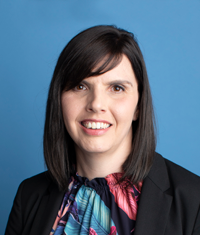Summary:
- The healthcare sector is one of the leading contributors to waste production and carbon emissions globally
- Waste management in Victoria costs around $17 million each year and 60% of this goes to treating and disposing of clinical waste
- Incorrect waste segregation, like placing unrecyclable items in recycling bins, adds to the cost
- Factors such as lack of time and knowledge and inconvenient bin locations contribute to poor waste segregation in hospitals
- The 'Green Maternity Intervention' resulted in a 71% decrease in clinical waste and a 48% reduction in waste management costs.
A side-effect of the lifesaving work of hospitals is the amount of waste it generates, from single-use gowns to the plastic tips on thermometers and used syringes. Waste segregation impacts the way in which this waste is handled, the cost of disposal and the impact on the environment.
According to Victorian Department of Health estimates, the State's public health system produced 42,000 tonnes of solid waste in 2010-2011. Greater use of single-use products during the COVID-19 pandemic means those figures are now much higher.
However, the results of a recent program to reduce waste at one of the largest maternity hospitals in Australia have shown that targeted education for staff and making sustainability initiatives more visible can cut down on the amount of hospital waste going to landfill. This is good for the health service and the environment.
The 'Green Maternity Intervention', led by midwives at Western Health's Joan Kirner Women's and Children's Hospital, resulted in a 71% decrease in 'clinical waste' and a 48% reduction in waste management costs.
The project was funded by the Executive Director of Nursing and Midwifery at Western Health through an annual midwifery research grant.
Waste management impacts the environment and the budget
'Waste disposal is a significant cost to healthcare organisations and incorrect waste segregation, like putting unrecyclable items in recycling bins, can increase that cost," says Professor Linda Sweet, from Deakin's Institute for Health Transformation and Chair in Midwifery at Western Health, who led the project with support from the Institute's Dr Vidanka Vasilevski and a team of passionate midwives at Western Health.
'We wanted to understand if a midwife-led intervention on improving waste management in a maternity hospital could help increase staff knowledge and reduce waste and waste management-related costs.'
The intervention involved midwife sustainability champions, education sessions, posters detailing correct waste preparation and disposal, monthly newsletters outlining key waste management strategies, and incentives to promote engagement with the intervention.
'Staff had identified inaccurate waste segregation as a problem that leads to greater waste management costs and a negative environmental impact,' Dr Vasilevski says.
'Although midwives value sustainable healthcare practices, factors such as high patient turnover, lack of time, inconvenient bin locations, and a perception that all waste is 'clinical' can make it difficult to "walk the talk"'.
Targeted education is key
The staff were surveyed on their waste management knowledge and attitudes before and after the intervention. A waste audit was conducted at the beginning, middle, and end of the project to track whether the intervention actually resulted in improved segregation.
The waste audit data showed reductions in 'clinical waste' and that waste segregation improved from the beginning to the end of the intervention, resulting in a reduction in waste management costs.
'When tailored education is provided, effective waste segregation increases. Our findings suggest that targeted education about what items go into what bin is useful, and that the maternity staff found the instructional signage helpful,' Prof. Sweet says.
'Having dedicated sustainability champions among the clinical staff - with allocated time to take on this role - was critical in encouraging behavioural change.
'Projects such as this are important in improving the sustainability of our health services,' she adds.
'With appropriate support, midwives can drive behavioural changes that can reduce the carbon footprint of maternity ward.'
Where to next?
The feedback from the midwives involved in the intervention has been very positive.
'Not everything we do in healthcare requires single use items and it's better to reuse where you can,' says Western Health midwife and nurse Jessica Huynh.
"One of our midwives commented that she hadn't realised we could have a more sustainable birthing room because everything is mostly single use besides the birthing equipment, so seeing reusable tubing for nitrous oxide was educational for her."
The research team will now discuss the value of the initiative and the potential for rolling it out on other wards at the hospital with Western Health executives. The findings of the study will also be published in the Journal of Advanced Nursing.
Professor Linda Sweet

Professor Sweet is a midwife researcher and the inaugural Chair of Midwifery in the Deakin University and Western Health partnership.
- Life Membership of the Australian College of Midwives for service to the college and profession.
- Involved in more than $10 million worth of funded studies.
- Author on more than 120 peer-reviewed journal articles.
- Presenter or named researcher on more than 230 national and international academic conference presentations.
- Deputy editor of the Women and Birth journal since 2015.
- Member of the national Midwifery Accreditation Committee overseeing all midwifery program accreditations in Australia.
- Invited member for committees with the Royal Australian College of Obstetricians and Gynaecologists, the Maternity and Newborn Learning Health Network for Safer Care Victoria, and the Health Professions Education Research Centre (HPERC) at Fiji National University.
Dr Vidanka Vasilevski

Dr Vasilevski is a research fellow in the Deakin University and Western Health Partnership. Her research program explores various factors that influence pregnancy outcomes and improve the delivery of maternity care.
- Investigator on grants totalling $2.4 million dollars.
- Led and contributed to research studies in a range of local and national health settings.
- Member of the Health in Preconception, Pregnancy, and Postpartum Early and Mid-career Researcher Collective (HiPPP-EMRC) International.
- Academic editor for PLOS ONE journal.
The text of this article is licensed under the Creative Commons Attribution (CC BY) 4.0






